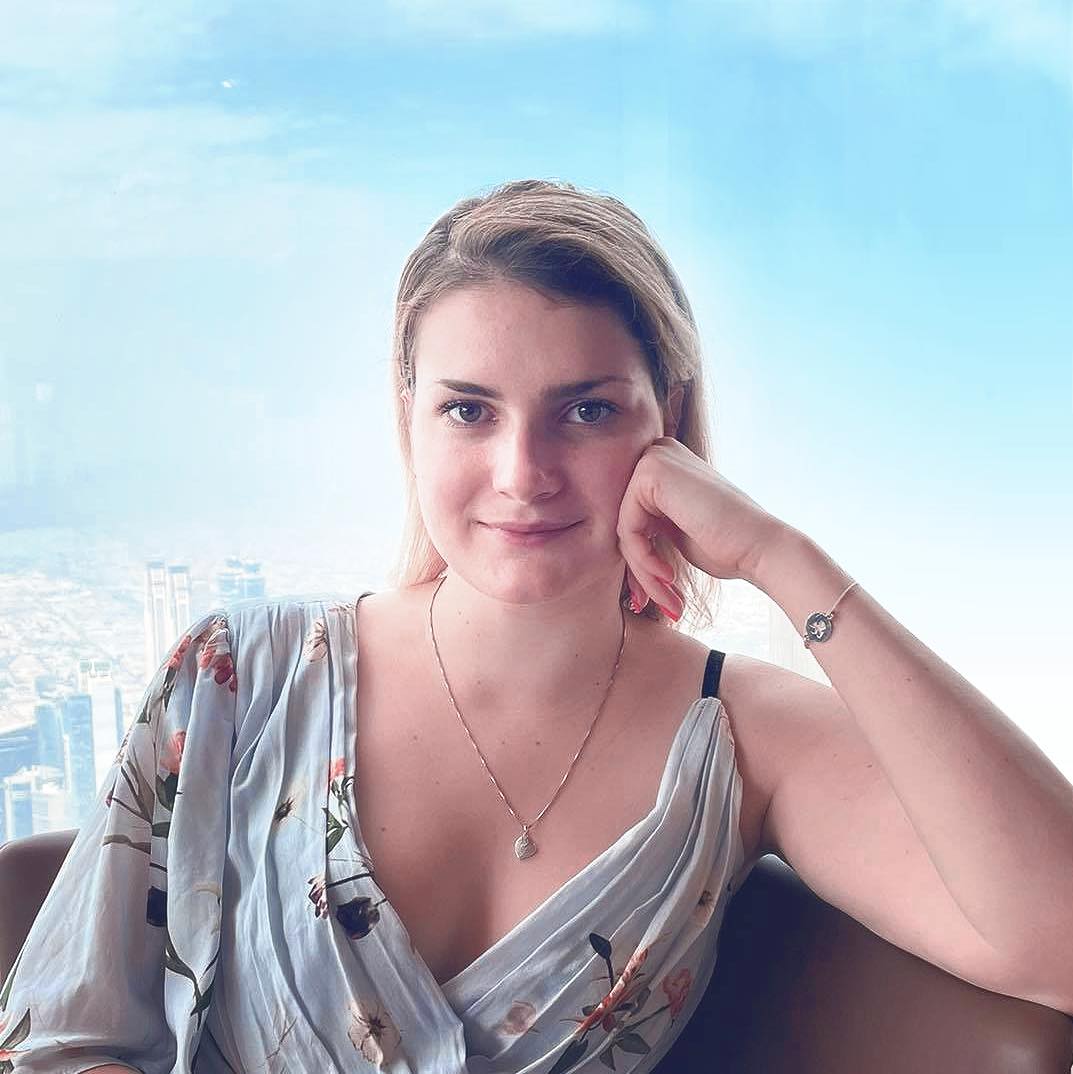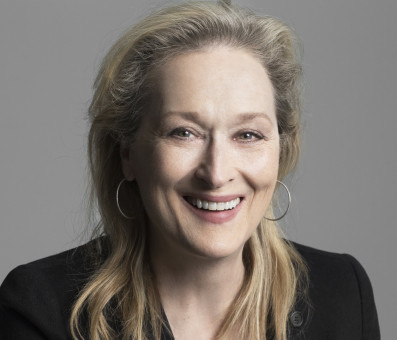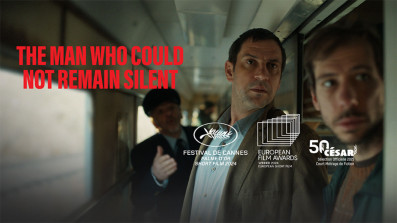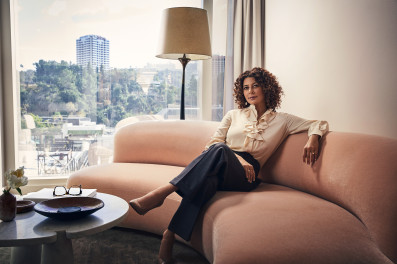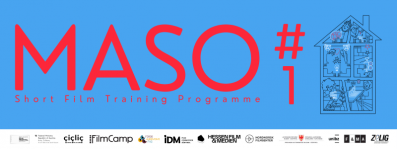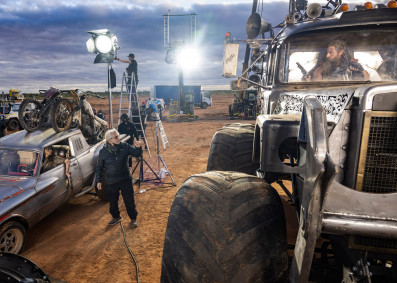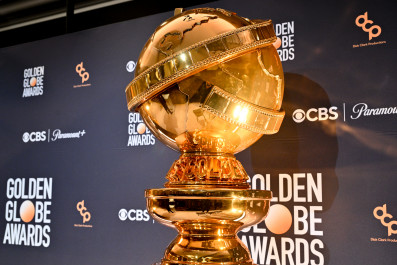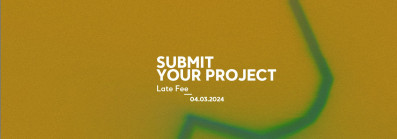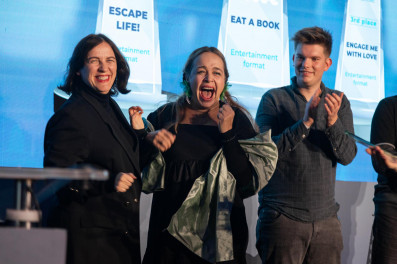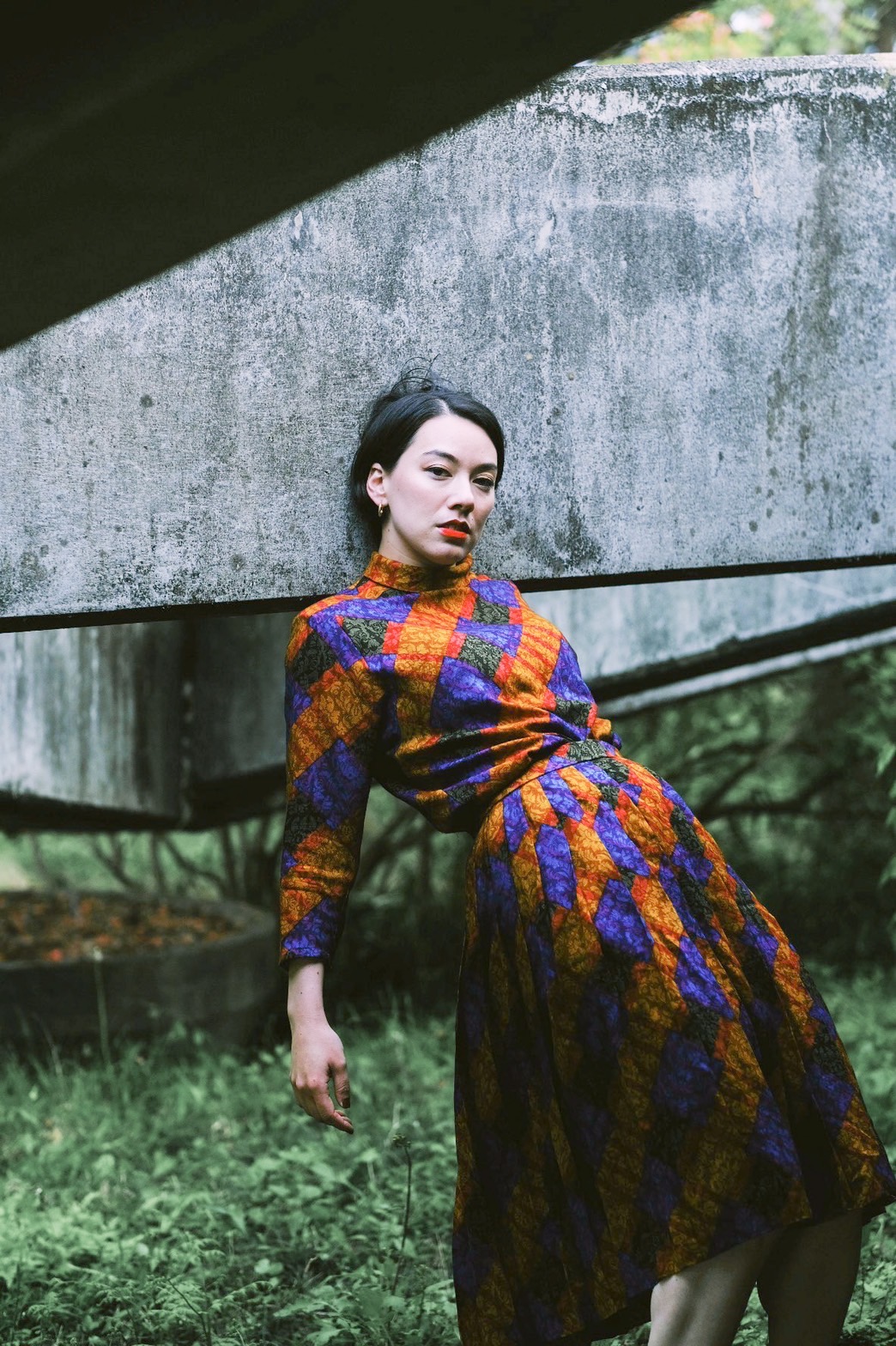
Performing artist, dancer, choreographer - interview with KINO
Juste Debout battle Winner - Battle Opera in the U.K. representing London in the World Finals at Palais Garnier.
1. How do you like to be called a dancer, performer, or choreographer? How do you “name” yourself?
Lately, I think I've been categorizing myself as Artist. Performing artist. Dancer, choreographer, all that works as well.
2. Can you tell me how everything started? How did you get into the dance? And how you fell in love with dance?
I started when I was six years old in Japan, and I started because of one of my family friend. She had a Tutu, a ballet costume that she wore in one of her concerts. And she was showing it to me and it was really, really beautiful. And I said to my mom that I want to start ballet because I wanna wear the costume. And so, I got my mum to call the dance studio and organized for me to go in. I went to the studio and I realized everyone wears a leotard throughout the year, and that you don't actually wear tutu until the performance. I was disappointed (smile). But, my mum had this rule that whatever you start, you can't quit until you're 13, when you're old enough to realize if you like it or not properly.
3. Was it harsh for you to stick to it until you were 13?
In a way, just because I didn't really enjoy it sometimes. But I think it was good that I actually got that chance to kind of create discipline. I moved to Australia when I was eight years old. And then I think dance really helped me deal with moving to another country, and not being able to speak a language… When you have dance as a form of expression, I think it allowed me to connect and communicate with people.
4. So you didn't know English back then when you moved to Australia or?
I did a little bit, but it wasn't my first language. I wasn't fluent in it. I understood more than I could speak. So yeah, we're seeing experience, but I think I used dance as like a way to communicate. But about the age of 12-13, everything moved into being more professional. The teachers were more passionate and some of those teachers had been dancing in the Australian Ballet and Royal Ballet dancers as well. So, when I saw these incredible dances, it made me want to do something with dancing, and the passion that they had, that I had, it just really resonated with me. And there was this switch I remember also one of my friends that I used to talk to a lot in class, she left. So, I think after that I didn't have much to occupy myself but the actual class. And I made this decision in my head. I was like, I'm going to be a dancer, so I'm going to be in the Paris Opera Ballet, and I'm going to do it with one of my close friends that I ended up creating down the line in the same studio. She was also really passionate and serious.
5. It's amazing actually how you managed to convert your dreams into reality?
Yeah, it was really crazy because like when you say that, it's really interesting because of the contest that I won. This is where I represented the U.K. for the world's dance competition which is called Juste Debout. It's one of the biggest dance battles in the world. And I won it, yeah. Which was accidental because I went in just to watch because it's such high standards. I was like, and I don't usually battle, so it's not my thing. And I was like, oh, I'm just going to go watch. And I've done small battles here and there, but never serious and I only went in there because it was like £5 cheaper to enter and I was like, I'll save money, I know I'm not gonna go through. Bur somehow I just never got kicked out and I ended up winning it. That section was called “all styles or Battle Opera”.
6. How did you end from a classical ballet to a hip hop battle?
Well in the studio I think I had a few dance styles, but hip hop was not really in my area, so I would make my mum go and drive for 2 hours, 3 hours and back in those days like we didn't have Facebook and stuff like now. So, I literally had to Google Hip Hop Dance Studios and I would just find the address and go to random classes and try it out and I just fell in love with the community aspect of hip hop. The battle scene compared to the choreography scene is very different. So, when it comes to battles you really need to train the foundations of things like popping, locking, you know there's so many different styles, house and breaking and so on, and I never really trained in that properly. For me to enter a battle like that, it was very daunting, but they had a section called “all styles”, which is any style you like and it was supported by the Paris Opera Ballet. And then Paris Opera Ballet organized the world finals to be in Paris at the Palais Garnier and that's where I was going to perform. It was just crazy, because that was my dream, to be in the Paris Opera Ballet. And it was so funny that, after all these years, like in my mid 20s, I would never think that somehow my dream would come in that way, in that form.
7. So, but then you attended that competition as well?
Yeah, the world's finals, but unluckily it was cancelled by the protest because Paris was having a protest at that point, so they didn't open the theatre for us. So it got cancelled and then the pandemic happened.
8. I think that we all had the unfortunate experience of the pandemic and the closure of theaters, less audience even after the pandemic. How does that make you feel as an artist?
It was really hard because I had my parents there. My whole family came to all the way from Japan to watch me, and then it got cancelled. And I think when for us dancers have opportunities like this and to be able to dance on a stage like that would have been so epic. But when things like that get cancelled, I guess it takes a while for you to digest what happened. And I always try and see these moments as this: “OK, So what was I meant to learn from this lesson? Why? Why do I think this happened to me in this moment? Is there anything that I kind of go deep into? Like, is there anything that I'm doing right now that's not in line? Or is there anything that I could have prevented or Anything that reflects this” and sometimes I can’t… I can get deep into that, but sometimes there are no reasons, but also sometimes I'll find an incredible lesson from that, and I think with that experience I learned that I was really, really anxious before that performance and it was unsustainable and it made me realize that what I really needed to do in preparation was to not over exhaust myself. I was physically ill for a few days after because I think I put so much stress and pressure on myself. And it's funny because of the way I won the battle in London... That National competition I won because I had no pressure on my self, I went in not even expecting anything, but I felt like it really shifted when I put too much expectation on myself for the World Finals.
9. How do you deal today with stage fear, let's say, do you have it?
Since then to now, it's been a massive journey throughout the pandemic. I had a massive break from dancing. Eight months, I went to the ski resort, quit dance for a bit, just to kind reflect on what it is that I really wanted, what I wanna do with my life and what is my identity without dance? Because I put so much value on my career and how successful I was. And now I think since I've been able to let go of that and just see myself as a person and what I do, as a separate thing, that way of thinking helped me a lot. Because I think I take those experiences less personally. I went to therapy and I tried to understand what anxiety is and I really worked through that. And now I use a lot of meditation, a lot of breath work, even in my dancing now.
10. But do you consider that sometimes the stage fright is also sometimes really good for your performance because it makes you more vivid?
Often on the opening night the energy is super high and the day after it, usually performance is less good because they consume all their energy on the opening night. Yeah, definitely. And that's the funny thing about excitement and anxiety right now, they sit side by side. I think it is so much about how you can try and shift your perspective mentally and if I feel anxious, I just try and see it as excitement now and harness that energy and use it in a way that I can feel more in control, or more present that so that I can I try to stay calm. Listening to the music or finding something simple that I can concentrate on. But it’s interesting how all these different emotions can really change the way you dance. Because when I did a show on West End, I did the same show over and over again for one month straight. You have to try and find something new, and accept different emotions. And I realized before that I was trying to feel the same thing every single night. And then I realized it's not possible. Like, I'm a human being, you know? Yes, I'm gonna feel different things every day.
11. We met in Belgrade during the Japanese Serbian Film Festival. You were invited as a guest, you performed at the opening night and at the closing night. How do you feel about the Japanese Film Festival and all of these events in the past few days?
Yeah, it was really amazing. Obviously meeting incredible people is so amazing. At the opening ceremony was very cool. I think it was special to be able to share a dance that's influenced by my culture, in Serbia, and it's so beautiful because I can just really feel people's interest and respect towards our culture. And I think that's really beautiful because sometimes I find that in Japan we don't really understand how amazing our own culture is. I think that we take it for granted. And if anything, Japan has the tendency to be really influenced by the American culture. We always want to be Western, you know? We even change their facial structures of themselves. And it's all about, not wanting to be Asian or authentic beings. And so it's really amazing when I can be sharing my culture in Serbia and almost show Japanese people like this is how much people actually really love and respect us for who we are. Let's take more pride in that. Let's really harness how special we are.
12. You are Japanese, but you are an International artist, you carry that culture with you and probably when you go abroad your country respects you more, which is in most countries similar. But it's really strange because I always considered Japan as being traditional, being a really historically grounded country, how did it happen that you became so influenced by American culture?
There is a very big traditional aspect that still does exist. But I think in the younger generation especially, there's that massive influence from the West. I personally think that it probably happened within World War II. Since that, we really look up to America, and Japan has a really beautiful way of thinking and doing everything with honour and respect, and also they are very good at self-reflecting. We really reflected on what we did wrong as a nation after the war. That was a massive awakening for Japan, and I think there was that sense of OK, we really need to reflect and change things, and that was really positive but it also has the other side, the other spectrum, where we maybe lost a bit of respect for ourselves and gained maybe a bit too much respect for others.
13. You spoke before about your teachers, that had the passion that they gave to you as well. You are a teacher as well, you are holding dance workshops. How do you feel about being a teacher?
I love being a dance teacher because my parents are teachers, they own English schools in Japan. So, I think that's why I've always been passionate about teaching and it is also a great way to keep learning because, if you don't keep learning then you can't teach something new. I feel like it makes it helps me evolve as a dancer as well. But lately I've been trying to really focus on holding my classes in a way that is safe for people to express and explore themselves. I'm trying to work a lot on our mental space, our mental attitudes, and how we can approach dance in a healthy way because there can be a lot of toxicity that is in our industry. So it's my approach of how I start or even just hold the classes change so much over time and I think I've really began ti understand how I like to teach. I concentrate a lot about how to be unique and find your own identity and be honest to how you're feeling, what are the sensations you are feeling. And I see that it really helps people, not just in how to understand your body more, but I can see that it has such a healing benefit and aspect to it. And it's been incredible to go around the world and see how people take it on in such different ways. But I feel so connected with people afterward and it's honestly like the best feeling ever to feel as though you're giving a vehicle for someone to be able to better express themselves or, you know, better connect with others or even themselves.
14. You were teaching in in the Czech Republic, a lot in Italy, Serbia also... Where did you experience something completely strange, or exciting?
I would say that the most interesting has to be Russia. One of the students after during the Q&As was like: “So what does the rest of the world think about us?”
15. What´s your experience with movies?
I was in a movie, it's called Everybody's talking about Jamie. It was a West End show and they basically wanted to make it into a movie. And then I was one of the assistant choreographers for creating the choreography for that film and I also got to feature in the film as well. Also, I was in a few TV shows and stuff like that.
16. Where do you see yourself in three years? Where do I see myself in three years?
Hopefully back in Europe. In three years, I think one of the biggest aims that I have is that I can be as happy as how I feel now. I think where I am in my career and my trajectory as a human being, I feel really good. I hope that it's this but expanded. But I do hope that my dream will come true, and that is to be able to own a dance company or something like that where I can constantly work with dancers and create, and have a base of dancers to work with. And I've been trying to, and that's one thing that I'm really passionate about lately. I want to be the traverse for a lot of the dancers in the world. And I brought some Japanese dancers and people from London to the Czech Republic. I'm trying to always connect the dance world. I really want to also be able to introduce more dancers to the other parts of the world and take them to events and hopefully do shows and stuff like that. It's like when I went to the Czech Republic with the dance, the dance event organizers, It was like we were basically dance travel agents. It's just so funny how that's just actually expanded, so we hope to keep making that happen with other events in other countries like Serbia as well even and Croatia of course.


